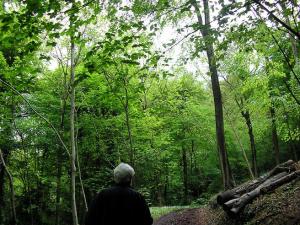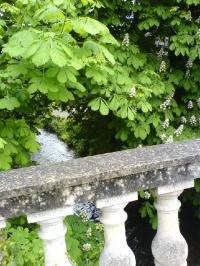
Resources for students
I introduce courses on green economics by making clear that the narrow debate between white, western men that dominates neoclassical economics has to be replaced by a wider debate that takes into account the needs and perspectives of women, those in the majority world, future generations and even other species. I call this presentation Widening the Circle (pptx, 2763 K)
The next important change in perspective that green economics requires is to move away from thinking of money as the scarcest resource to realise that it is actually energy that is the resource we have to be most interested in conserving. This brings about a change in the way we think about efficiency. This presentation is called Economy, Energy, Environment (ppt, 1448 K).

I have found it useful to think about the economy using the principles of permaculture, a philosophy that arises from a recognition of the earth as a limited system. It relies on a sequence of design principles that can be applied with local variations to generate sustainable, self-sufficient communities. According to the Permaculture Research Institute of Australia, ‘The philosophy behind permaculture is one of working with, rather than against, nature; of protracted and thoughtful observation rather than protracted and thoughtless action; of looking at systems in all their functions, rather than asking only one yield of them; and allowing systems to demonstrate their own evolutions.’ I call this presentation (sorry, userfile id 'permaculture' not found in database)
Since money is so central to the working of the global, capitalist economy it is essential that you understand how it works before designing a green alternative. I cover this subject in two sessions, one of which explores how money (ppt, 3016 K) is created and why local currencies might be a viable and sustainable alternative. The second is about the international money system (ppt, 4062 K), its inequalities and what we might seek to replace it with. This is obviously a huge topic, and there are longer pieces of writing for download on the money page and the page called Money, Finance and Banking.
The globalised economy relies on the financial system and also the system of international trade, which is usually justified in economy theory by appeal to the now long-outdated theory of comparative advantage. A course on green economics would probably include a session critiquing this theory, together with one offering A Green View of Trade (ppt, 1215 K).

Much of the content of the course as outlined here consists of deep reframing of what an economy is and how we need to do some fundamental rethinking of how our economy is structured if we are to ensure that it does not threaten our environment, if not our very survival. An exception is A Green View of Taxation (pptx, 983 K), which is a programme that could be introduced by a Green Chancellor operating within the same market system that dominates our thinking at present.
The introductory pages of this website make it clear that a green economist takes a wholly different view of basic issues such as work and land, which might be called this rather than being referred to as factors of production and labelled labour and land, as in mainstream economics. In a course on green economics I would include a session on land (pdf, 159 K) and another which extends the concept of work away from the sale of one's physical or intellectual labour in a marketplace and towards the direct provisioning for your own needs and those of your community. This is focused on the policy of a Citizens' Income (ppt, 2891 K)
